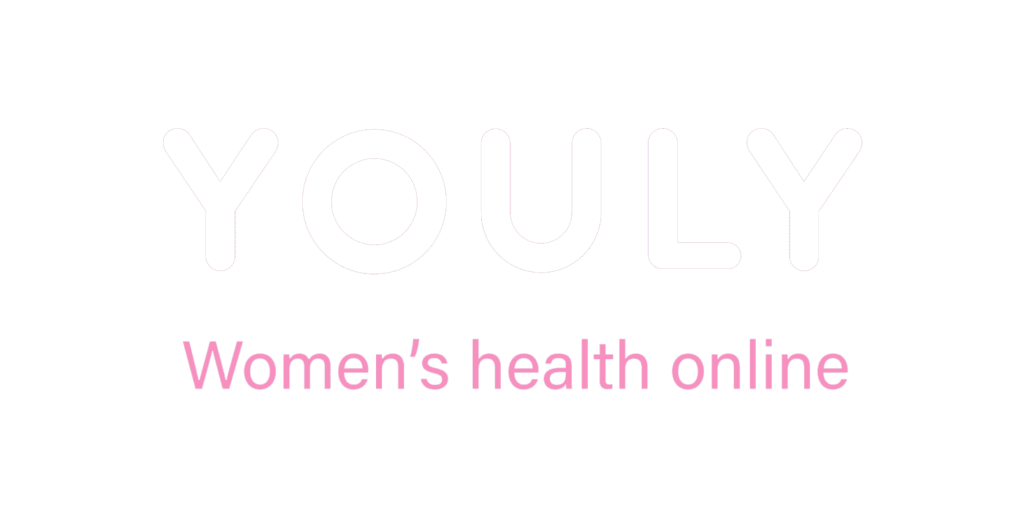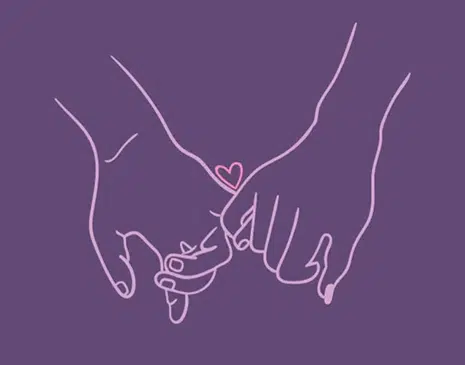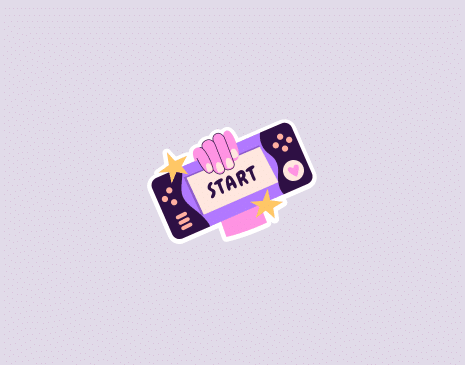By Laura Baxter
(TW: sexual assault and rape)
Let me first begin by telling you a little bit about myself and why I wrote this piece. My name is Laura and at 19 years old I was raped and sexually assaulted by my best friend. Like many survivors, I struggled to comprehend what had actually happened and truly believed that I would never be able to be intimate with anyone ever again. I was so traumatized and so violated by what had happened, I felt that part of my life was over and sex was now horrifying. During this period of time, I was struggling with Hyposexuality due to my trauma where I couldn’t face even the idea of sex, I had no interest and had ruled it out of my life completely.
Flash forward a couple of months and I was now experiencing the complete opposite reaction where I was having sex with lots of people and telling myself “I’m completely fine now, look at all this sex I’m having”. What I now realize of course, is that during this time I was experiencing what is known as Hypersexuality due to my trauma. My thoughts when having sex would be things like “having sex proves I’m over my trauma, sex with all these people has cleansed my body of the rape and I will let any man touch me who isn’t my rapist and that is my revenge”. These things of course were not true or healthy but at the time, that was how my brain was responding.
For the next few years, I would continuously cycle through both Hyposexuality and Hypersexuality until I eventually found an incredible counsellor who started working with me through my trauma, assisted me with going to authorities about what had happened, and reassured me that both reactions were COMPLETELY NORMAL for sexual assault and rape survivors like myself. But what we needed to do now was work on processing my trauma, re-establishing connection with my body and working towards having healthy sex again (among other therapeutic goals).
The year is now 2021, I’m 24 years old and while I am still in therapy and working through my trauma, I can proudly say that I am starting to have healthy, grounded, pleasurable sex with people I choose. If you had asked me at the time of my assaults if I thought this would ever be possible, I would have told you that you were insane. But that’s why I decided to write this piece. To share with whoever reads this the hope that it can and will get better for you (or someone you know). And to share with you the top lessons I’ve learned along the way that will hopefully help you learn from my mistakes and have healthier sex sooner. Keep in mind that these lessons are based on my own experiences and every trauma survivor is different. So, if something doesn’t resonate with you, that is totally fine. It’s about finding what works for you and your recovery.
Lesson #1: Don’t beat yourself up. There is no manual for how to cope after an assault and you are doing the best you can. You are NOT damaged, broken, tainted or ruined. You are hurt and need healing but you are still the incredible person you were before your assault and just as deserving of love, intimacy and respect as everyone else.
Lesson #2: Seek help from a professional you trust. Sexual assault and rape are incredibly traumatic experiences and while you are a survivor and you’re incredibly strong, only a professional therapist with trauma-informed therapy practice can help you truly understand your trauma reactions, process what has happened to you and eventually move through those experiences in a healthy way whilst in a safe therapeutic space. Remember that it doesn’t matter when your trauma occurred, it is never too late to seek help.
Lesson #3: Listen to your body and your mind, don’t rush yourself. When a sexual trauma occurs, it is very common to become disconnected from your body as you live in survival mode and trying to identify your genuine interest in sex can be almost impossible at times. It is so important that if you’re going to engage in sexual activity, that you are genuinely ready for the experience and you’re feeling good about it (whether solo or with another person). Don’t rush into sex of any kind just because you think you should be having it. But instead, listen to your mind and your body. Do you feel excitement or arousal? Do you feel ready for this experience? Do you feel safe entering in to this activity? Etc.
Lesson #4: Remind yourself of your bodily autonomy. Your body is yours and you are in complete control of what you do with it, who you allow to touch it and how you allow your body to be touched. At the time of your trauma, that autonomy was not respected and your perpetrator took that right away from you. But that experience is over and you still have control over your body. Never forget that.
Lesson #5: Grounding, grounding, grounding. I wrote it three times because this is such an important skill. As I mentioned before, it is very common for trauma survivors to become disconnected from their bodily sensations and even experience dissociation. Grounding is a fantastic exercise that not only helps with connecting with your body but reduces anxiety, stress and assists with mindfulness. There are heaps of exercises you can do but two of my favourites include drawing my attention downwards to my feet and noticing my connection to the ground (what can I feel? The floor, my shoes, the grass, do I feel warm or cold etc.). The other is performing a full body scan where you slowly work up from your toes, through your entire body and notice what you feel. Do you feel tension, relaxation, warmth, coldness, tingling, stiffness, can you relax your muscles etc. These exercises will help you especially when it comes to sex because you’ll be able to ground yourself in the present moment. Rather than disconnecting from your body which can sometimes result in flashbacks or becoming triggered. Ultimately grounding practice can lead to sex where you can enjoy your partner, enjoy the experience and feel pleasure once again.
Lesson #6: When you feel ready, explore your body and observe what you like and what you don’t like on your own. If this idea doesn’t feel comfortable for you, then don’t do it. But the idea behind this is to gently observe how your body responds to different touches and see what feels good! You’ll know your triggers and those are so important to know, but it’s just as important to know what you like. Experiment with different parts of the body (arms, neck, chest, legs, genitals etc.), different types of touch (light touch, gentle pressure, wearing clothes, not wearing clothes, vibrations etc.) but all the while staying mindful of your body and seeing how you respond to each type. If at any time you become overwhelmed then stop and show yourself care and love. This is a process and even being open to trying is a huge step.
Lesson #7: When it comes to partnered sex, communication is key. I highly encourage you to be picky when it comes to who you decide to be intimate with and make sure that you’re choosing someone (or more than one someone) who you can easily communicate with. Not only that but make sure that they listen to you actively and they respect you, and your right to say no. For example, if you ask to meet someone for a coffee before you do a home date, but they keep asking you to Netflix and chill, that’s probably not someone you want to be having sex with. Sometimes after assault you can have some difficulty saying stop, pause or no with a new partner. This is normal but while this definitely takes some self-work, you want to make sure that the people around you are the kind of people who will create a safe environment for you to assert your boundaries.
Lesson #8: When dating or having sex with someone new, think about what you’re comfortable sharing about your past and when. For example, I find it helpful to tell a new person that I might be a bit nervous meeting them and I’d prefer to do a relaxed coffee somewhere public first. And if the conversation is getting sexual and I’m feeling comfortable, I like to have the “what do you like and dislike” conversation where I can casually disclose my triggers as things I dislike. I highly recommend doing these things because the other person will be made aware of your triggers and boundaries but in a way where the conversation is being kept light and casual. This can help if you struggle to verbalise your limits. You don’t have to tell your full story to anyone if you don’t want to but I would also encourage you not to be ashamed of it either. You have a traumatic past, you survived it and you’re strong as hell for that.
Lesson #9: Remember you can change your mind at any time! It doesn’t matter if it’s a week before a date or if you’re right in the middle of sex. If you start to feel like you’re not ready any more, you can decide to stop and there is absolutely nothing wrong with that. You are in control.
Lesson #10: Process your feelings and reactions as they happen. While you’re working towards reconnecting with your body, processing your trauma and discovering pleasure/sex again, recognize that this is a big process and there will be some great times and maybe some bumps along the road. The main focus is on keeping yourself safe and healthy along the way by checking in with yourself, working with your therapist and acknowledging all emotions and reactions without judgement. Every reaction will be there for a reason.
If reading this has stirred anything up for you, below are links to the CASA website (Centre Against Sexual Assault) and Lifeline for additional support or resources:
https://casa.org.au/ https://www.lifeline.org.au/
Do you have a story you want to share? Are you creative trying to smash taboos with your artwork/design/writing? We’d love to share your work! Email [email protected]













